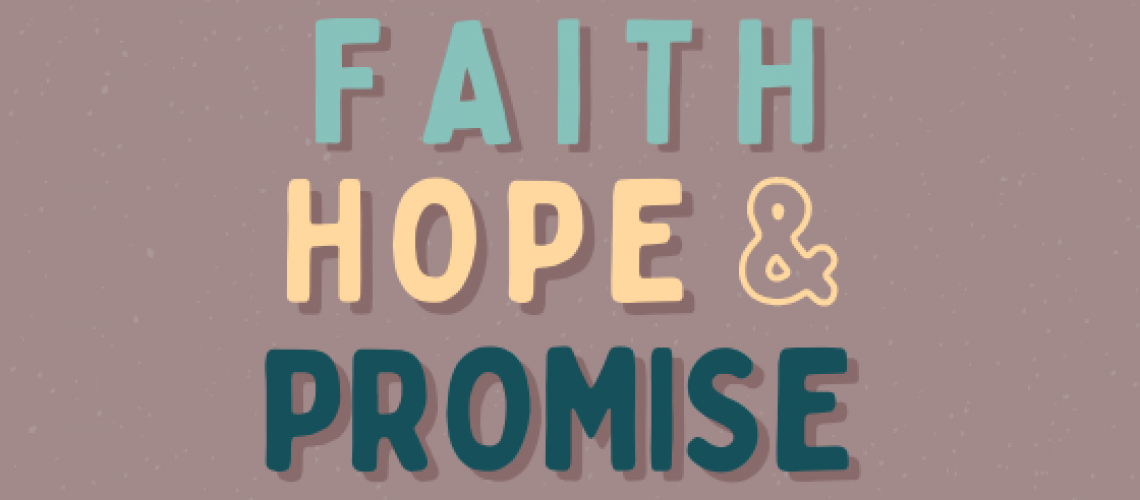Are you waiting for COVID to be over?
Me too! In fact, I suspect you may be waiting for several other things too. Perhaps you are waiting to hear back from colleges or grad schools to know what the next chapter of your life will look like. Perhaps you have been waiting a long time to find “the right person” to spend your life with. Or perhaps you may be waiting for some complicated situation in your life to resolve: a broken relationship to be mended, or a mental or physical health condition to improve.
Hope, our subject for today, implies not only waiting for an uncertain situation to resolve, but also assurance that it will work out for the best. To bolster your own hope as we wait together for this pandemic to finally end, I would like to offer a few of my own reflections about experiencing different types of waiting in the three situations named above.
My college acceptance story is not one I would wish on anyone. Simply put, I got accepted to zero out of the thirteen colleges I applied to my senior year of high school. Not exactly the outcome I had hoped for, right?! However, I did get to study abroad in Italy during my unexpected gap year, and on my second round of applying, I got an acceptance and scholarship to Pepperdine University. But the story doesn’t end there.
On the surface, Pepperdine was not what I wanted. I wanted Harvard! Something name-brand and impressive. Pepperdine was so familiar, so California, and people hadn’t heard of it. However, the difference between Pepperdine and every other college I applied to, was that Pepperdine was a Christian university. Through its commitment to engaging students in on- and off-campus service and ministry opportunities, as well as building community, Pepperdine supported my faith and personal development in ways far beyond what other colleges offered. Additionally, it provided academically rigorous classes and the opportunity to study abroad. No, it didn’t feel good to have my expectations dashed after that first round of college apps. But after another year of waiting and trying, things worked out even better than how I would have planned. Through not getting into the colleges I thought I wanted, I became more humble, and also received much more than I had thought possible from the college experience.
How many of you wish you could just find a good guy or girl, or know a friend who complains about this? Especially outside of college, it can be hard to meet new people, and post-college life in general can become isolated if we’re not careful. When they come along, every new relationship has high hopes attached to it, and it can be devastating if they don’t work out. However, as long as there isn’t someone with a ring on their finger that matches the one on ours, we have to both accept and appreciate our current situation. I wish that, before I met my fiance, I would have had more hope and assurance that things would work out eventually. This would have enabled me to live more in the present and take advantage of it, rather than complain that I was lonely and daydream about possible futures, saying “I’ll be happy when…” In reality, I see now that every situation I was in, leading up to now, was preparing me to meet the challenge of being in a committed romantic relationship.
No matter what, all true, intimate friendships–not just romantic relationships–require a lot to be successful. Each person involved must have the understanding that they are there to love and serve the other person, as well as to receive their love. To do this, they need to have boundaries, as well as be able to communicate their needs, desires, dreams and ideas. In turn, this requires self-knowledge.
Of course, it’s worth it! That’s why we seek these relationships so avidly. Loneliness is not what we are designed for, so it is painful. However, waiting for one single relationship to bring us happiness is unrealistic. The intimacy that we need in our lives can and should come from several close friendships, even after we enter a romantic relationship. So in this sense, much of what we experience as waiting for “the right person” is a process designed to teach us maturity and relationship skills. And knowing the purpose of this process is a reason for hope, even in the midst of the loneliness.
Complicated and difficult situations will arise in our lives. We hope that they will change, but we can feel powerless as we wait for this change to occur. Most of us have heard this prayer: “God, grant me the courage to change the things I can, the serenity to accept the things I can’t, and the wisdom to know the difference.” The truth is, any situation that involves you is one that you can change, as far as it depends on you. Any situation that does not involve you, you cannot change directly. Let’s take mental health as an example. Last week, I talked about my experience with anxiety and depression and some tips I’ve learned for navigating through them. I can sum it up with learning to take responsibility for my feelings. Sometimes, I make excuses for not doing my best, blaming my behavior on “not feeling like” doing the thing I am supposed to be doing. Having compassion for ourselves, as well as for others, is important. But accomplishing anything challenging, including overcoming mental health struggles, requires work, which you will not always feel like doing. It requires action!
But what kind of action? We are members of a community and need each other. Doing our part to improve a situation involves reaching out for help and collaborating with others. If we’re sick, we need to go to the doctor. If we are emotionally dysregulated, we turn to a friend, or if need be, a therapist. To ask for and receive God’s help, we can go to the Church.
On the other hand, our participation is necessary. In situations that involve us, we shouldn’t expect others to solve everything without our involvement. In the Gospels, Jesus rarely healed people without some kind of cooperation from them. Sometimes, they simply asked Him to heal them. However, He did sometimes ask people to go one step further…telling the blind man to wash the clay off his eyes, or the paralyzed man to take up his bed and walk. This is where our free will comes in. By participating in our own healing and in the healing of our communities, we become the person that we are made to be.
Finally, let’s turn back to the pandemic. Many would like things to go “back to normal”… how they were before. But this is an uncertain situation, whose resolution lies in the future. Nobody fully knows yet what the “new normal” looks like. It’s a perfect opportunity to practice hope in the season of waiting. Whatever the future holds, I would like to offer you three messages of hope, based on my own experiences of waiting which I have shared today:
From my college applications, I learned: We know that when we are devastated, it is not the end. Something better is coming. We just can’t see it yet.
From waiting for “the right person,” I learned: By passing through difficulty and loneliness, we become more mature. Rising to challenges now prepares us for future rewards, which strengthen us in turn for even greater challenges and more wonderful rewards.
From my ongoing quest to overcome anxiety and depression, I have learned: Our active presence is necessary and required for the healing of ourselves and our communities. Yet to accomplish anything lasting and true requires working together.
In closing, I’d like to offer you a few questions for reflection and journaling:
In your own life, how have you seen dashed expectations give rise to something better than you could have imagined? Has the pandemic crushed any of your dreams? What might be in store for you that could be better than those dreams?
What challenges have you met this year? What challenges have you faced this year that have grown you into a better friend?
How is God calling you now to increase your presence and activity in your community, to bring it greater peace, unity, and healing? Who in your community right now could use your support, whether a listening ear or practical assistance?
Catie Golitzin
Catie is a YES leader who is passionate about working with young people, especially Orthodox young people seeking to learn more about their faith, and incarnate this faith through activity in the world. She is also interested in the connection between faith, physical health, and mental health.




